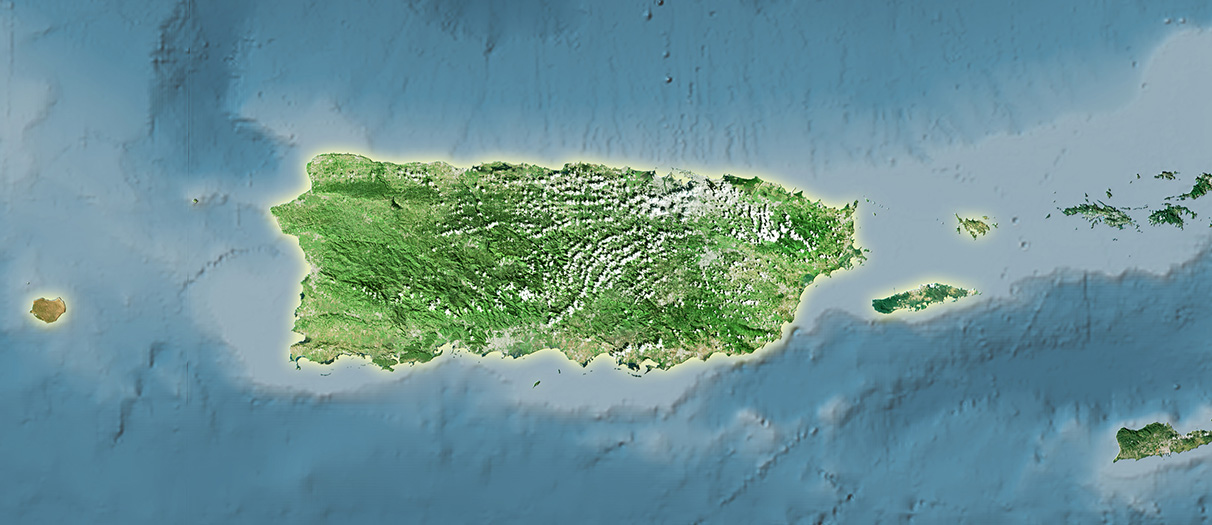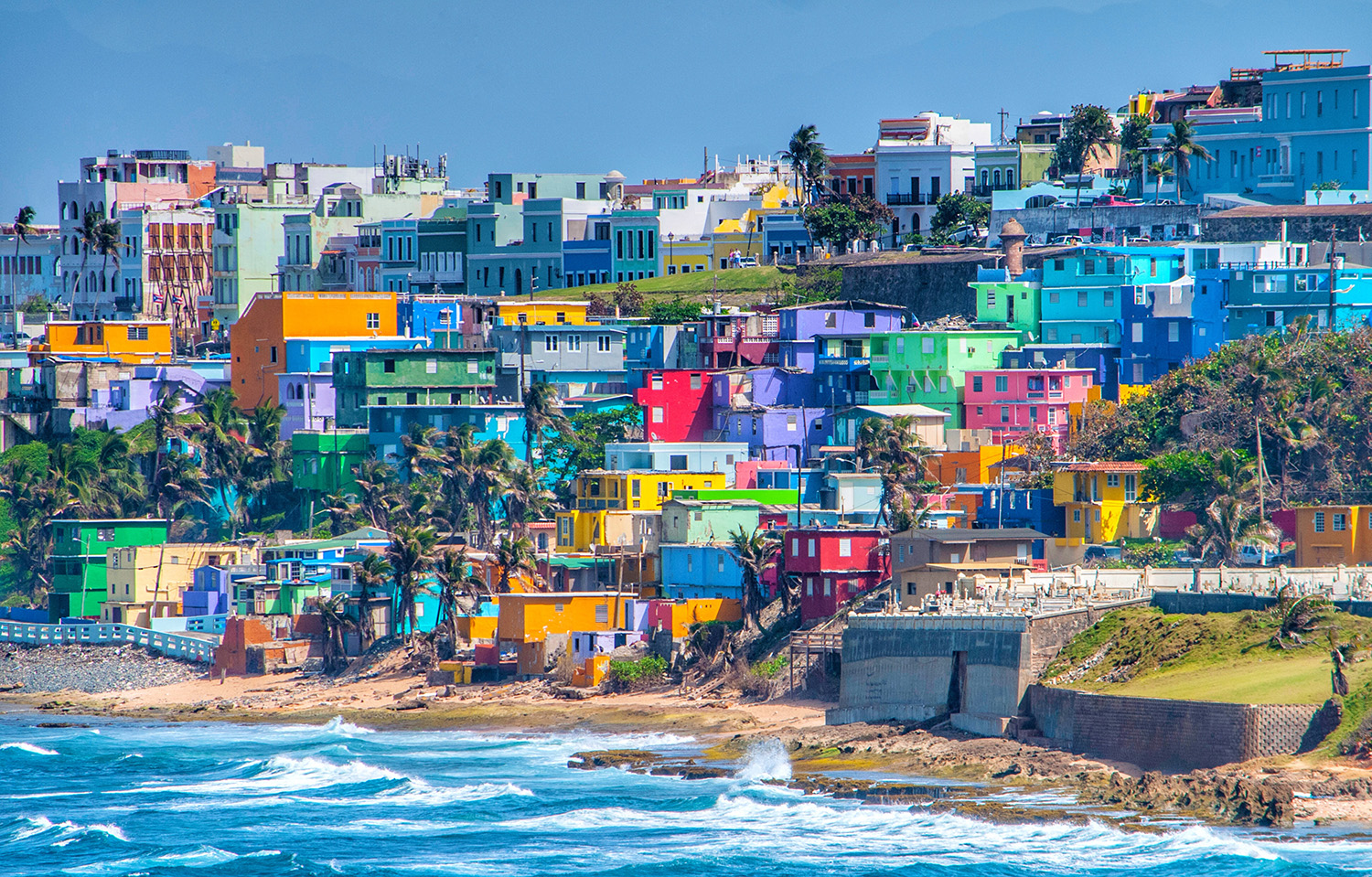I like to laugh. I like telling stories of funny real-life situations and laughing with others. I especially like making my wife and children laugh, although the Dad jokes primarily elicit rolled eyes and pained expressions. Sometimes, I make myself laugh in my own sermons. This is not a good thing.
However, I find nothing humorous in comedian Tony Hinchcliffe’s recent remarks about Puerto Rico. In case you missed it, Hinchcliffe, speaking at the New York Trump rally, declared, “There’s literally a floating island of garbage in the ocean right now, I think it’s called Puerto Rico.”
I’m not laughing.

Randy Shepley
This comment is symptomatic of the bigoted fear running rampant in our nation, the fear promising the mass deportation of undocumented immigrants, threatening the deportation of Haitians in the country legally, accusing Haitian immigrants of eating cats, labeling all immigrants as criminals, denigrating women and people of color, and trumpeting malevolent threats against “the enemy within.”
I’m not laughing.
But, back to Puerto Rico. Actually, I’m going back to Puerto Rico in a little more than two weeks. I have not visited since before the pandemic. My first trip to Puerto Rico was for an immersive mission experience in 2011. I have returned on four other occasions. I have run the World’s Best 10K race in San Juan twice. I have gone with a group of amazing men to rebuild the roof of a home after Hurricane Maria.
Every time I visited, I was embraced like family. I worshipped with people who loved Jesus and served their community with kindness, grace and devotion. I have painted schools, built roofs, led vacation Bible school, prepared food, folded clothes and cleared out brush alongside Puerto Ricans who love Jesus and their island.
In fact, if you ever want to see eyes light up and features grin, ask a Puerto Rican to tell you about their island. Their enthusiasm is palpable.
My Puerto Rican friends have invited me into their lives and to embrace their island in so many ways. They have pushed me beyond my boundaries, especially when I was invited to take Salsa lessons. Twice.
“My Puerto Rican friends are powerful examples of grace and hospitality. They are not garbage.”
My Salsa experimentation definitely had people laughing. Lots.
My experiences and friends in Puerto Rico have changed me. The island itself gets into your soul. My Puerto Rican friends are powerful examples of grace and hospitality. They are not garbage. Their island is not garbage. The followers of Jesus in Puerto Rico are living to see the kingdom of God come to life in Puerto Rico, to see love and justice roll on their island.
They are not laughing.
I have seen an outpouring of people responding with disbelief and anger to the malicious “island of garbage” comment. This ugly instance of misguided humor, however, offers every non-Puerto Rican on the U.S. mainland a unique opportunity: the chance to discover Puerto Rico.
Perhaps this ridiculous insult will prompt people to listen to the stories and concerns of Puerto Ricans and join them in seeking justice for their island.
I am not Puerto Rican. I am not an expert on Puerto Rican history or island affairs. I will share with you, however, some important observations I have learned from my Puerto Rican friends and research over the past decade.

Puerto Rico on a satellite map in the stereographic projection (Shutterstock)
Puerto Rico is an American territory with Puerto Rican allegiance. Technically, Puerto is a U.S. commonwealth, which means Puerto Rico has a degree of self-government, under the auspices of the United States. Puerto Ricans on the island and mainland are U.S. citizens at birth.
Puerto Ricans use dollars as their currency and although they pay no federal income taxes for income earned on the island, they pay their full share of Social Security, Medicare, self-employment, unemployment, customs and merchandise taxes. They also receive fewer benefits than residents of the mainland.
About 375,000 Puerto Ricans have served or are currently serving in the U.S. military, a greater proportion of population than any other state.
While Puerto Rico is certainly vested in its U.S. connection, Puerto Rico is proudly and emphatically Puerto Rican.
Spanish is the primary language spoken throughout the island. The main flag flying is the Puerto Rican flag. Puerto Rico has its own international and Olympic sports teams. Puerto Ricans are proud of their food, culture, music, dancing, art and communal way of life. They are proud of the beauty and wonder of their island: beaches, mountains, cities, the El Yunque rainforest, the bioluminescent bays, and the gorgeous night skies punctuated by the sound of coquis.
While U.S. connection and administration is evident, Puerto Rico is brazenly, even a little defiantly, Puerto Rican. It is wonderful.

Colorful houses line the hillside overlooking the beach in San Juan, Puerto Rico (Shutterstock)
Even though Puerto Rico is a U.S. territory, Puerto Ricans have no vote for president or representation in Congress. Puerto Rico has no voting representation in the U.S. Congress, even though Congress makes tax and commerce laws that impact the people of Puerto Rico. Puerto Rico does have a nonvoting member of the House of Representatives, but it is hard to affect change without voting power.
“It sounds like ‘taxation without representation’ doesn’t it?”
Veterans living on the island have fewer benefits than veterans living on the mainland, and yet, they have no voting representatives or senators to plead their case. Puerto Ricans living on the island can vote in presidential primaries, but not in presidential general elections.
So, Congress has the power to tax the people of Puerto Rico, while Puerto Ricans cannot vote for people who can speak and vote on their behalf. It sounds like “taxation without representation” doesn’t it? No wonder Puerto Ricans often call their island a “colony” of the U.S. This terminology is appropriate in more ways than one.
The U.S. has a heavy handed and cruel history in Puerto Rico rooted more in preserving mainland interest than caring for the citizens of the island. This is a harsh statement, and yet, the historical data support its inclusion.
The gag laws of the early and mid-20th century forbade learning Spanish and the display of the Puerto Rican flag. Sugar cane plantations made American companies millions at the expense of the Puerto Rican workers. There was the Ponce massacre, American warplanes bombing the towns of Jayuya and Utuado, the ongoing effects of the Jones Act, the dispiriting passage of the PROMESA legislation in 2016 and the lackadaisical federal response to Hurricane Maria. These are only a few examples of Puerto Rico’s suffering under the colonial pressure and, at times, brutality of the U.S. government.
It is important to note that this pressure and brutality has occurred under the leadership of both major U.S. political parties. If we are willing to investigate, we can find much to repent for on the island of Puerto Rico.
Puerto Rico faces significant challenges. Recovery from hurricanes Maria and Fiona along with earthquake recovery are still major concerns in Puerto Rico. The decline in population as many young adults move to the mainland in search of higher-paying jobs looms over the Puerto Rican people, culture and economy.
The future of Puerto Rico itself may be the greatest challenge facing the island. For decades, the people of Puerto Rico have split regarding the future of their island. Some would like to pursue statehood in the U.S. In fact, Puerto Ricans have voted for statehood three times since 2012. Others want to retain the status quo commonwealth standing. Still others are proponents for free association, which promises more independence for Puerto Rico while still retaining an agreement of cooperation with the U.S. Finally, there is a small yet significant group favoring full independence.
“Puerto Ricans can vote for their future, but their vote is not respected or even considered.”
The problem is, even though Puerto Ricans have voted for statehood on three recent occasions, the U.S. government refused to consider Puerto Rican statehood under both Democratic and Republican presidents. Puerto Ricans can vote for their future, but their vote is not respected or even considered.
Puerto Rico needs a definitive path forward, one they choose, supported and invested in by the people and government of the United States for the good of the island and its people. Without a viable path forward (and without the removal of the purchase and trade restrictions of the Jones Act), Puerto Rico cannot build and sustain new industry and economic opportunity.
Like you, I am appalled by a comedian calling Puerto Rico an “island of garbage” and laughing it off a day later. The people of Puerto Rico deserve better. They deserve people who will love, listen to and help them. They deserve people who will learn their story and help them uncover solutions for the future of their island.
My prayer is that as we pray for the people of Puerto Rico, we will commit to listening, learning and loving. Maybe you will even visit and meet people in their homes, churches and restaurants. You will love the people. You will fall in love with the beauty and wonder of the island.
Even if you aren’t good at Salsa.
Randy Shepley serves as senior pastor of First Baptist Church of Newport News, Va. He previously served on the Global Missions Council of the Cooperative Baptist Fellowship.
Related articles:
Today, it’s Puerto Ricans; tomorrow it will be you | Opinion by Rosaly Guzman
100 years after the Immigration Act, we’re reaping what we’ve sown | Analysis by Rodney Kennedy


